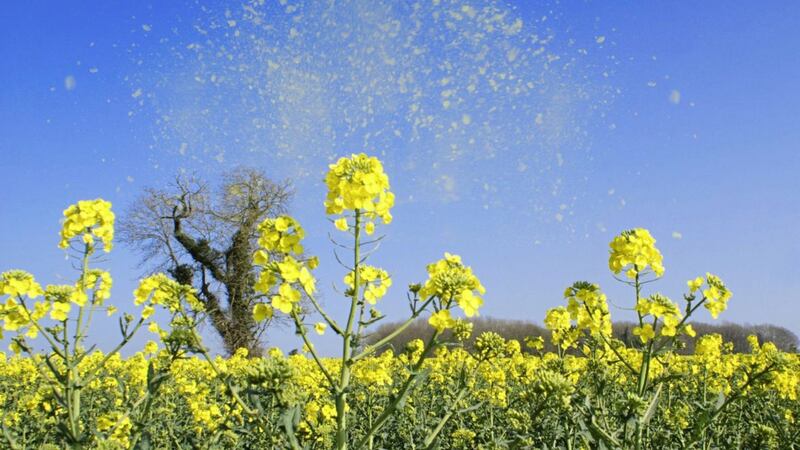IF YOU suffer from hay fever, the seasonal sounds of summer – chirping birds and next door's lawnmower – can mean the onslaught of sneezing, runny noses and watery or itchy eyes. Alongside your usual antihistamines and hay fever remedies, nutrition could also have a role to play in helping to manage symptoms of seasonal allergies.
:: What is hay fever?
Hay fever is an allergic reaction to pollen or spores in the atmosphere. Some people react to grass pollen, while others are more affected by trees or flowers – that's why hay fever hits different people at different times of the year. Peak season is June and July, but the recent warm and sunny weather has triggered a spike in pollen levels, with headlines warning of the effects of the 'pollen bomb' for allergy and asthma sufferers.
It is thought that around 20 per cent of us suffer from hay fever. Symptoms can include itchy eyes, runny nose, headaches, sinus problems and fatigue.
:: Seasonal support
Using the power of nutrition to help support your immune system and balance inflammation could help alongside your usual antihistamine and allergy medication. Taking steps to change your diet a few months before the onslaught of symptoms is ideal, but if you are affected already, there is still plenty you can do to help manage symptoms.
1 Start with your gut: Evidence is growing to show that the health of our beneficial gut bacteria is integral to our immune system. One study showed that a very specific probiotic supplement containing three strains of beneficial bacteria – Lactobacilli gasseri, Bifidobacteria bifidum and Bifidobacteria longum – helped to reduce severity of allergy symptoms compared to a placebo. The more we can do to look after these beneficial bacteria, the better.
2 Get spicy: Chillies contain an active ingredient called capsaicin that acts like a natural decongestant. Other foods like horseradish, chilli, ginger, pepper, thyme, garlic and curry may have a similar effect.
3 Get plenty of vitamin C: It's is a natural antihistamine and it can also help to support our immune system too. Vitamin C rich foods include berries, kiwi, oranges, peppers, blackcurrants.
4 Quercetin: Hay fever sufferers are producing a lot of histamine right now, in response to the high pollen levels. Quercetin is an antioxidant with antihistamine effects. This polyphenol compound is found in onions, garlic, peppers, broccoli, apples, berries and beans, so it is worth packing these into your diet. Health-food shops sell a combination of vitamin C and quercetin that some people find useful to use alongside their usual medication.
5 Omega 3 fats: These have anti-inflammatory properties, so are a 'go to' for anyone suffering with allergies. Aim to have oily fish in your diet a couple of times a week – salmon, mackerel, herring, sardines or trout. If you don't eat fish, or are vegetarian, then you can get some omega 3 from chia seeds, flax or walnuts.
6 Pineapples: They contain an interesting ingredient called bromelain that has been found to thin mucus and aid congestion.
7 Honey: Some people find that eating honey produced in their local area is beneficial.
8 H2O: Keep well hydrated.
9 What to avoid: Avoid foods that are likely to make symptoms worse. These are likely to include alcohol, sugar, caffeine, dairy products, chocolate, peanuts, wheat and citrus fruit. An elimination diet could help you discover anything that exacerbates symptoms.
10 Slather up: Try applying a barrier cream on the inside of your nostrils. For a natural alternative to petrolleum gel, try a beeswax-based product with essential oils. The idea is that the pollen sticks to the gel, stopping it going up your nose and making you sneeze.
:: Please note, these ideas are not designed to replace medical treatments from your GP or Pharmacist. Consult your GP for further advice.








